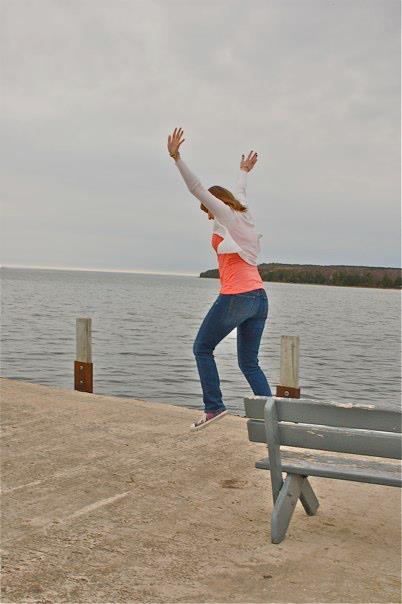*TRIGGER WARNING: Sexual assault
It goes without saying that talk about sexual assault has been fairly unavoidable the last few years, in part because of movements like #MeToo and over 20 allegations against President Trump. This has its pros and cons, as survivors of sexual assault are often reliving their assaults. However, there is strength in numbers, and women are becoming more and more comfortable with speaking out about their experiences. People are becoming more educated on sexual assault and seeing how common it actually is. Sexual assault statistics vary by country, but the numbers likely do not reflect the actual prevalence of sexual assault because it is often unreported for many reasons. Increased awareness and discussion on sexual assault is crucial not only for young people and future generations but also to help survivors heal. An overall understanding of sexual assault, what women do to protect themselves, why it’s so often unreported, and how to support sexual assault survivors is essential in creating a safer world for everyone.
Before delving into the subject, I should say that I started writing this 2 years ago for one of my other blogs when Brett Kavanaugh was confirmed for the Supreme Court, then 45’s appointment who threatens to strip women’s rights, but life got in the way. Even though there is a lot going on right now, this is still (unfortunately) a revelant subject. This will be a long one, but I hope it will open some eyes and minds to the truth about sexual assault. I have seen an increased understanding from some men over the last few years, but there is still a long way to go for both men and women when it comes to sexual assault, and there are still questions about what constitutes sexual assault. None of this is to say that men are not also at risk of being assaulted, but they are sexually assaulted far less than women, so this will focus more on women.
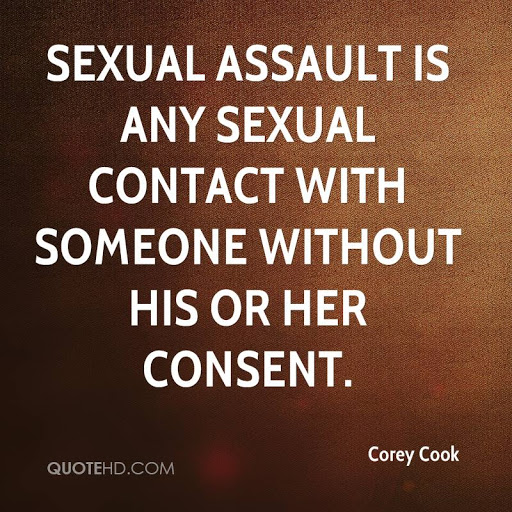
To be clear, sexual assault includes any form of sexual contact or activity where there is no consent, including unwanted touching/groping, rape, forced kissing, or forcing someone to touch you. It can make a person feel uncomfortable, powerless, or afraid, even threatened. Despite having “sexual” in its name, it is not always about sex and is often also about power and control, which is why sexual abuse is also a form of domestic abuse. It is also important to stress that not all sexual assault is rape, but rape is a form of sexual assault.
Even the most well-meaning men don’t always understand the effect the risk and fear of being sexually assaulted can have on women or how much women already do to protect themselves beyond the obvious. I’ve had men suggest classes to learn how to defend myself, which certainly is not a bad idea. Women are constantly told to dress a certain way, don’t drink too much, etc. This puts the onus on women to protect themselves, rather than on men to not attack them. Women already do a long list of things men do not realise or have to think about themselves, and yet they are still attacked.
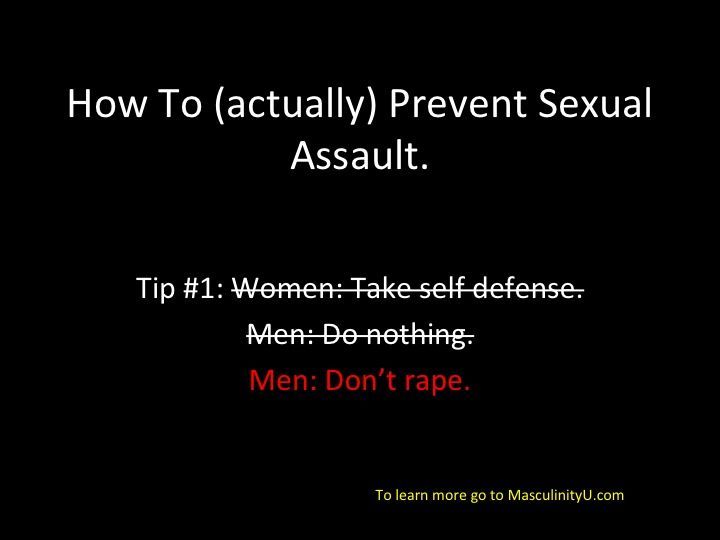
To help men see how women try to protect themselves (and each other), I’ve compiled a far from exhaustive list of things women do or can do to try to protect themselves. It may sound like an exaggeration, but I can promise that you know someone who has done these things.
- Using the buddy system when going out at night.
- Not drinking alone and making sure our friends get home safely if they’ve been drinking too much.
- Running and doing similar activities during daylight as much as possible.
- Holding keys between fingers when walking alone at night.
- Crossing the street if walking alone at night and seeing a man or group of men.
- Not leaving drinks out in public places or accepting drinks when we haven’t seen them being poured.
- Texting friends if we’re going out alone at night and letting them know where we’ll be and when they should expect to hear from us.
- Meeting in public for first dates. – I was once invited to go to an Airbnb hot tub with someone as a first date. He took it well enough when I said no, but it amazed me that men still don’t understand why a woman would see this as dangerous.
- Telling our friends where we’re going if we do decide to go home with someone.
- Texting friends when we get home to let them know we’ve made it safely.
- Ignoring/not confronting men who appear aggressive or lewd.
- Pretending to be friends with women we don’t know if they’re alone and appear to be in an uncomfortable or potentially dangerous situation. – We all know that look that says, “Save me.” I think most women know that if they go up to another woman and say, “I’ve been looking for you!” or something along those lines, the other woman knows to act like they’re best friends. The same phrase can be used when helping a woman in this situation.
- Limiting personal information on social media. – I may be the only one who does this, but I started hiding information about where I work a few years ago after a man I barely knew found out where I worked on Facebook and started sending me things there to try to get a date out of me.
- Not wearing earbuds or wearing earbuds without the sound on when out alone at night. – I may not always do this, but I am always looking all around me, rather than just looking straight ahead. This is a pretty common one. Earbuds are an international sign of “don’t bother me” and should be treated as such.
- Constantly being aware of surroundings and not going down alleys or places where people can’t easily see us, especially at night.
- Checking the backseat of the car when getting in, especially at night, even if we’ve just been getting gas/petrol.
- Making sure our phones always have a charge and having emergency numbers ready to just press Call if necessary.
- Having someone we trust walk us out.
- Waiting and watching to make sure our friends get in their homes safely when dropping them off and not driving off until they’re inside.
- Parking near bright lights and getting house keys ready before we get home.
- Taking taxis or Uber home if we’re leaving somewhere late or feel threatened. (Even that can be scary.)
- Going into a public place or changing direction if we suspect we’re being followed.
- Calling a friend/family when we’re walking alone at night and talking about where we are, so if someone is following us, they know someone knows where we are.
- Not disclosing to Uber drivers or whoever if we’ll be alone when we get home.
- Wearing fake rings because some men respect another man more than our right to not be interested or to say no.
- Locking car doors even when we’re in the car.
- Double-checking that all doors are locked at night.
- Carrying pepper spray, Swiss army knives, or other potential weapons.
- If our car breaks down, and we’re stranded, we let someone know where we are and lock the doors. I learned to always say I’m in an unsafe place when AAA asks when I call for help. Unfortunately, I learned this the hard way when I was pulled over on the side of a busy road one morning when a man stopped and said he’d be willing to help me “for a little something something.” Needless to say, I rolled up my window and made sure the doors were locked.
- Staying in hotels as much as possible and avoiding couch surfing or staying in an Airbnb where we don’t get the whole place.
- Avoiding walking by places alone at night where someone could easily hide.
- Ignoring messages from men we don’t know and keeping DMs closed. Thankfully, Facebook has made it easier by filtering messages from people we’re not connected to, but that doesn’t stop the messages from coming.
- Avoiding rest stops, toilets at petrol stations that are outside, etc. when alone at night.
- Always knowing where the exits are.
- Not opening our door if we’re home alone and not expecting anyone.
- Taking self-defence classes or knowing the basics and having a plan in case of an attack, e.g. aim for the eyes/balls, do something gross (vomit, urinate, etc.) to try to keep them off.
- Trusting our instincts about people/situations.
- Uncomfortably laughing off/ignoring comments about us or our bodies or sexual advances that make us uncomfortable and trying to change the subject.
- Making sure someone is home with us or someone else knows we have someone coming over for services, like TV repairs, etc.
- Never leaving our drinks unattended.
I’m sure there are some who will say that women don’t really do all these things or that we’re being paranoid. We don’t stop living our lives or live in constant fear, but we really do live constantly being aware of potential danger. Of course, sexual assault still happens every day, and in America, someone is sexually assaulted every 73 seconds. (Note: This statistic said 98 seconds when I initially wrote this in 2018.) People can do things to protect themselves, but they only help so much. They don’t stop the random guy from grabbing your butt as he walks by while you’re waiting for the bus on a busy London street in broad daylight. It also doesn’t help that most people are assaulted by people known to them.
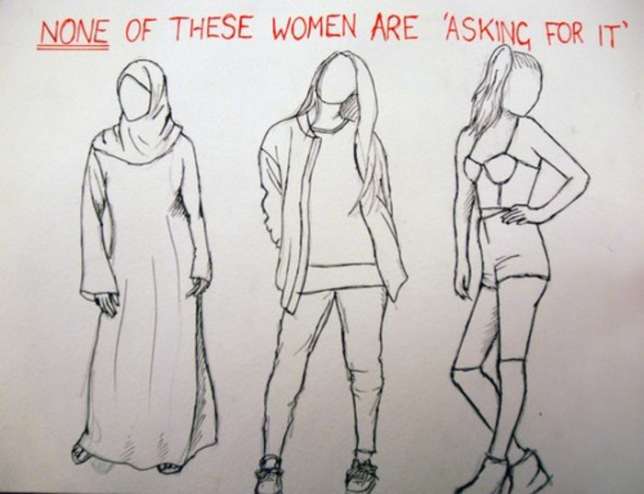
When the above measures fail and a woman or girl does get assaulted, she may not report it, but that doesn’t mean it didn’t happen. There are a number of valid reasons why sexual assault is not always reported. For one, it is incredibly difficult to get a conviction, and even if there are witnesses and evidence, justice is rarely served, particularly if the perpetrator comes from a certain background. (Look at Brock Turner for just one well-known example.) It can be re-traumatising to retell and relive the events in front of a court. Victims are expected to act a certain way, to cry or to be unemotional, and if they don’t act the way others think a victim is supposed to, it can affect how they are viewed and the outcomes. Meanwhile, like all types of abuse, we often hear that the perpetrator could/would never do that because they’re often ‘charming,’ so all the responsibility to be a certain way falls on the victim in order to be believed. Even without it going to court, victims are often not believed for one reason or another. They get told they ‘wanted it’ or just that it didn’t happen or didn’t happen how they remembered. Far too often, victims in general are blamed for what they said or what they wore or what/how much they drank. Victims can be bullied, especially teenagers, if they speak out. There’s a powerful documentary on Netflix called Audrie & Daisy about two teenage girls who were sexually assaulted, who were bullied and abused after their assaults. Sadly, both of them have since completed suicide as a result of what they experienced.
In addition to the above reasons sexual assault is underreported, there is a lack of education for young people around sexual assault, consent, and healthy and unhealthy relationships. We tend to hear ‘Boys will be boys,’ which completely excuses harmful behaviour and releases them from taking responsibility for their actions. It suggests that boys are unable to control themselves, an attitude that is dangerous in itself. Likewise, this can cause women and girls to minimise sexual assault when it does happen to them. They might say, “Well, I wasn’t raped, so it’s not a big deal.” We are taught from a young age not to make a fuss, and sadly, that allows these behaviours from men to continue.
In 2016, when the tape was released of Trump saying he liked to “grab ’em by the pussy,” many women were reminded of their own sexual assaults. In 2017, #MeToo became a thing, and we were again reminded. In 2018, we were reminded yet again during the Brett Kavanaugh hearing. A lot of people still didn’t seem to completely understand it in 2019 when reporter Alex Bozarjian was smacked on her backside by a runner on live TV, and people (usually men) continued to make jokes or act like it wasn’t sexual assault. All of these sparked international discussion and, for many, a firmer understand of consent and what constitutes sexual assault. Consent, sexual assault, and sex education aren’t completely or appropriately taught in many schools, and this can lead to a lot of confusion from both men and women about what is and isn’t okay. It’s unfortunate that it has taken so many women (and male victims) to open up about their experiences to make people start to understand what it really is, but I applaud anyone who was brave enough to come forward, often risking their safety and well-being to do so.
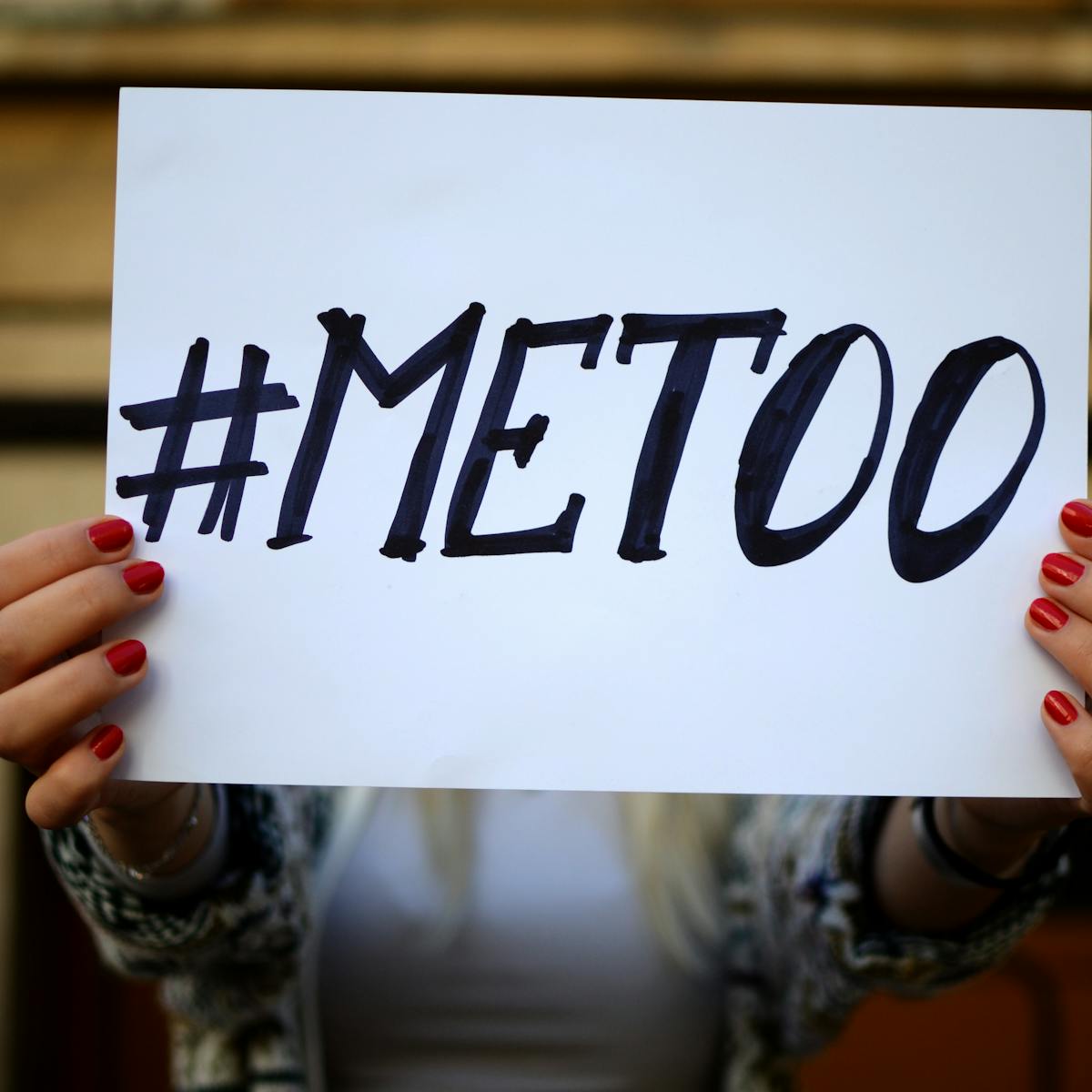
*Trigger warning for personal account of sexual assault*
When I heard Trump’s “grab ’em by the pussy” comment in 2016, I was taken back an incident when I was a teenager that had been in the back of my mind for years but that I don’t think I ever really told anyone. I think it was partly embarrassment/fear people would think I wanted it since I liked him, partly a lack of understanding that sexual assault isn’t just rape or that I didn’t want it, and partly that I didn’t understand what difference it’d make if people knew. That changed when I heard Trump’s comment, and it opened up discussions about sexual assault. I started telling a few people, including one or two who knew the perpetrator. Thankfully, I was listened to and believed by the handful of people I told. (One who knew the guy even guessed that it was him, perhaps because he knew some of our history.) It felt good to get it off my chest, and I gained a deeper understanding of the fact that I had been assaulted and how it’s affected me since then, which I won’t get into here. I did not remember all of the more minor details of it at first, but interestingly, when I heard Christine Blasey Ford’s testimony at the Kavanaugh hearing, I suddenly remembered exactly what I was wearing and how that came into play, too. Memory is a weird thing, and you never know what can trigger it, but Trump’s comment and that testimony certainly did.
When I was a teenager, I really liked this guy we’ll call B. (This is not his actual initial.) We’d been talking and hanging out for a few weeks and sort of tiptoed around some interest, even though I knew he didn’t like me as more than a friend, and he knew that I did like him. I was a painfully shy, inexperienced teenager, though, and probably latched on to any sort of attention. It culminated when I went to his house when his mother wasn’t home, and we were making out, but I was clear that I was not ready to have sex with him and just wanted to kiss. What actually happened was him dry humping me, taking my hand and putting it on him (clothed) when he was hard and saying, “Now you can say you’ve touched B’s hard penis.” Those are bad enough, and I was uncomfortable but still didn’t really understand what was happening. When I told a friend about it later, she joked, “You gave him blue balls.” To be fair to her, I don’t think either of us really understood all that happened.
When I was leaving, he walked me to my car. I was wearing a black, cotton corset-type top that tied together with ribbons, not clasps, and jean shorts. None of it was necessarily sexy, especially for a hot Florida summer. I don’t remember what led up to it, but I remember B running his hand down my top, so some of the ribbons came loose, revealing more than I’d wanted. Oddly, I didn’t remember that until I heard Christine Blasey Ford’s testimony, but then it became clear as day.
What I did remember for over 15 years was that at some point, B also – without warning or asking – put his hand down my shorts and groped me in the same way Trump admitted to doing. He then made a disgusting comment I remember but won’t repeat. I tend to laugh nervously when I’m uncomfortable, and I may have done that, but I also remember clearly telling him that I said no sex or anything and to stop. Naïvely, I’d assumed he knew that meant that I didn’t want to be suddenly “grabbed by the pussy” either.
I will never forget what he said after I protested what he had just done. He made a comment about being bigger and stronger and said, “I could have raped you.” Chilling.
I wish I could say that was the end of things with him, but that wouldn’t be true. I didn’t really understand what actually happened until years later, only that I had felt incredibly uncomfortable and embarrassed and did not want any of those things to happen. I think that to this day, there is some self-blame for continuing to still like him after that and not ending contact altogether. But teenagers aren’t exactly known for understanding what is and isn’t healthy when it comes to relationships.
When I did understand the situation and tell people I felt I could trust, I was thankfully met with compassion and understanding that not all victims get. That doesn’t change that we can all do more to support victims and try to prevent sexual assault by educating ourselves and others.
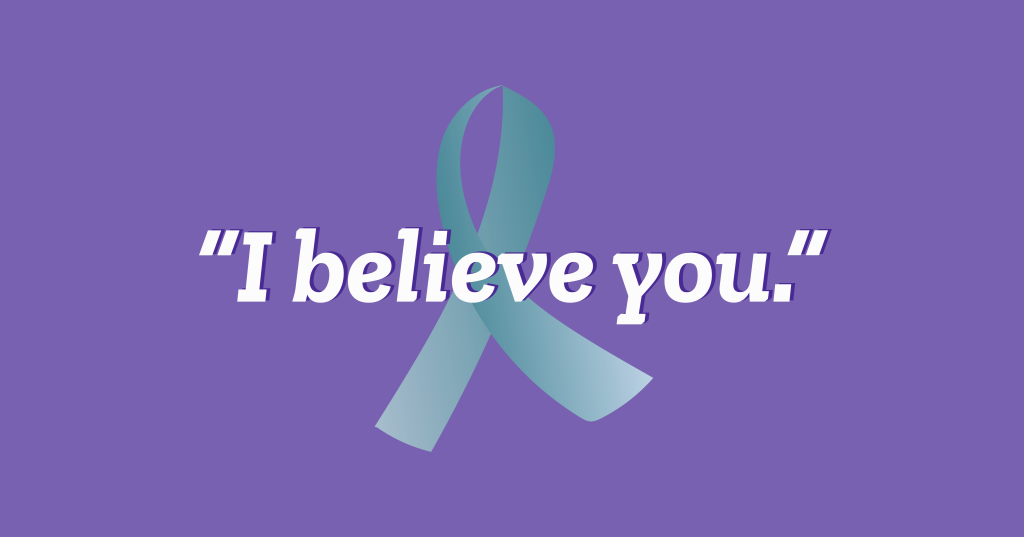
What You Can Do
Education on consent starts from a young age. Teach children – boys and girls – young. Teach them that they do not have to say yes to anything that makes them uncomfortable. Teach them about consent. Teach them to respect when someone says no. Think they’re too young? They are never too young. Consent does not only apply to sexual contact. Even young children can tell/show you if they do not want basic contact – hugging, kissing, holding, tickling. If you ask a child for a hug, and they say no, and you do it anyway, you are not respecting their right to say no. If you are tickling a child, and they tell you to stop, STOP. Immediately and without teasing. This will teach them that you respect their right to stop at any time and that they can feel safe saying it. That is a lesson that will stay with them as they get older.
It is unfortunate that some countries do not have appropriate sex education or they teach abstinence-only education, which does not work. Teaching about the physical side of sex and bodies is not enough. Children and young people do not always see healthy relationships modelled for them, which can cause them to enter unhealthy, abusive relationships. Even without the relationship side of things, children need to be taught consent. They need to understand that if it’s not an enthusiastic yes, it’s a no, and they cannot just assume that someone wants what they do. If someone is intoxicated or under the age of consent, they can’t legally consent, and it’s rape/sexual assault, even if they say yes. It is important to understand the emotional and legal repercussions of sexual assault and not respecting consent or lack thereof. We should advocate for sex education to be covered appropriately in schools, but it can’t just be up to schools to teach these things. Children need positive role models and see healthy relationships in their lives, whether it’s through family or mentors or school.
Boys, in particular, need to be taught to respect women and girls (and just people in general). They need to understand that women do not owe them anything no matter what. There’s that view of “I’m a nice guy, but I keep getting friendzoned.” This is such a dangerous statement. First of all, the friendzone does not exist because women are capable of being friends with a guy without ever having thoughts of more. If you are only nice to a woman or friends with a woman because you think she’ll give you something in return, you are neither nice, nor a friend, and there’s a good chance she sees that. Just like you are not attracted to every woman you see, women are not obligated to give or be anything for you. But I hear so often about ‘Nice Guys’ complaining about women, and it’s this kind of attitude or the view that they are owed that leads to things like sexual assault. More than teaching girls and women to do the things I noted above to keep themselves safe, it is essential to change the view too many boys (and men) have by teaching them that they are never entitled to a woman.
It’s actually incredibly easy to teach consent in simple terms. Take a look at the video below as an example.
When it comes to supporting people who have been sexually assaulted, there’s a lot you can do. The most important thing is to listen. Never pressure someone to make a report or do something they don’t want to do, which can also cause them to feel like they don’t have control over their situation. Let them tell you whatever they want to tell you in their own time. Don’t press for details and never, ever blame them or ask questions that could be blaming. Believe them. For them to go to you and tell you what happened, it shows that they trust you. Show them that they made the right decision telling you by being supportive and thank them for trusting you with something personal and difficult to share.
It is also crucial to understand that not everyone will respond to sexual assault the same way. As I said above, some people may be numb and seem unaffected. Some may be shocked. Some may be tearful. There is no right way to act after you have been sexually assaulted, whether it just happened or was 15 years ago. Everyone will be different. People talk about ‘fight or flight’ in difficult situations, but it neglects another response: freeze. Many people may freeze during and after sexual assault. There is a truly brilliant series from BBC in the UK and HBO in the US called I May Destroy You. It details several different types of rape (including of a man) and the different responses the people had to it. It handles sexual assault and rape in a very realistic way and shows the effects of it. (It was inspired by Michaela Coel’s own experience of sexual assault, and she deserves every award for the series.) I won’t lie: It’s a difficult watch, but I also think it should be required viewing for young people and adults to help them understand more about sexual assault.
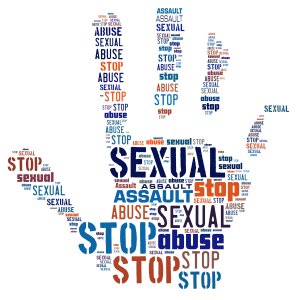
What it really comes down to is that we need to educate ourselves and each other. Rape culture absolutely (unfortunately) exists, and we need to call it out when we see it. Call your friends out if they make jokes about sexual assault/rape. Call them out when you see them disrespecting women or acting like they are entitled to a woman. ‘Locker room talk’ should not consist of degrading women, and the only way to change things is if men are allies for women and call out toxic behaviour like that when they see it. We need to trust others’ experiences and trust our own. Realistically, sexual assault will never be completely eradicated, but we also need to all work together to do everything we can to prevent it and support each other, starting with age-appropriate formal and informal education. None of this post is by any means exhaustive in terms of the things women do to protect themselves, why sexual assault is underreported, and what you can do to help, but I hope it fostered a bit more understanding. If everyone just takes a few simple steps to support each other, we will see better outcomes for everyone.
